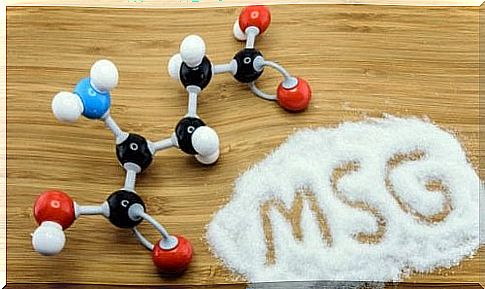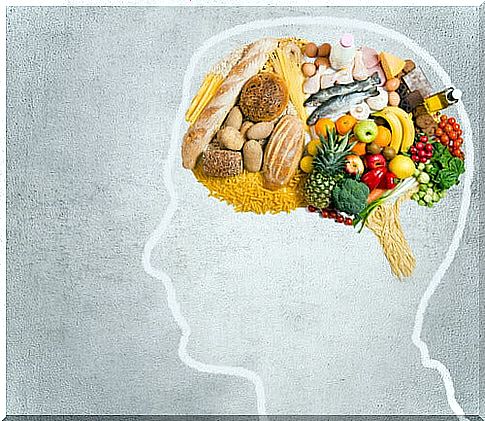The 5 Biggest Enemies Of Brain Health

Good brain health depends on many factors. The most important are exercise and oxygenation. However, the foods we eat also play a decisive role. They bring us or take away substances that directly influence the functioning of our brain.
Healthy food is based on natural products. Above all, we have to maintain a balance. Nothing that is eaten in excess is good. You should also not introduce processed foods into the diet because they are too processed. Especially those who have large amounts of sugar, salt or fat.
Very often, mood, the ability to learn or memory are affected by the consumption of certain foods. These are products that include components that have the potential to affect the nervous system and especially the brain. It is therefore important to pay attention to it.
Some components are found in the majority of processed foods but go unnoticed. We only notice them by looking at the ingredients even if, very often, their name does not help us. We are now going to point out to you five of these foods and components that must be avoided for the benefit of good mental health.
1. Gluten
Gluten is a set of proteins found in several grains. Even though they are all different, they are given this generic name because of their many similarities. They are found in wheat and its variants, barley, rye and other similar foods.
These proteins stick to the small intestine and cause metabolic, digestive and immunological disorders. Some people are more sensitive to gluten. Others are not really sensitive to it even if, in almost all cases, it generates assignments. Gluten is one of the enemies of brain health because it affects the nervous system in general.

2. Artificial sweeteners
Sweeteners are substances that substitute for sugar in food. Some are natural but the majority are artificial. They are known to affect brain health. In fact, many call them “brain poisons” because they produce excitement in neurons.
Aspartame and saccharin, two artificial sweeteners, have been linked to certain nervous system disorders. Among them are depression, anxiety, recurrent migraines and difficulty with language. These substances are present in a large number of industrial products. In general, in all those which carry the label “light” or “reduced in sugar”.
3. Monosodium glutamate
Almost all packaged and canned foods have this component. It is a very concentrated salt. It is used to preserve food and to give food more flavor, as well as a more pronounced odor. Its consumption has been shown to stimulate the production of dopamine in the brain.
Dopamine generates a feeling of momentary well-being. However, MSG also has a high component of “excitotoxins”. There are many clues that show that these elements affect brain health. Monosodium glutamate is even associated with serious illnesses like Parkinson’s, Alzheimer’s, dementia and chronic fatigue.

4. Refined sugar
Sugar is considered one of the “three white poisons” along with salt and refined flour. Currently, it is one of the most widely used components in different types of food. Its prolonged consumption gives rise to various difficulties and also endangers good brain health.
Refined sugar limits the function of a protein called BDNF. This has important functions in the nervous system, such as protecting memory and facilitating the connection between neurons. It has been verified that people suffering from schizophrenia and / or depression become even sicker when they consume sugar regularly.
5. Fluoride
Fluoride is an element added to drinking water, mainly to keep it clean and safe. Even though it is imperceptible, it is found in the water that comes out of the tap. This component has been severely questioned. It is suspected to be linked to poor intellectual performance and impaired cognitive functions.

The Fluorine Action Network (FAN) presented 34 studies that appear to support this fact. Organizations like UNICEF have also spoken out against fluoride in water. We know that it reaches even more concentrated doses in bottled water.
To maintain good brain health, it is best to eat fresh foods. The biggest enemies of the nervous system are found in packaged and processed foods. In addition to not having a high nutritional value, they cause illnesses. So, if you can, avoid them.









